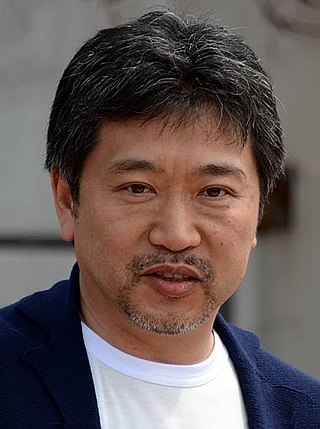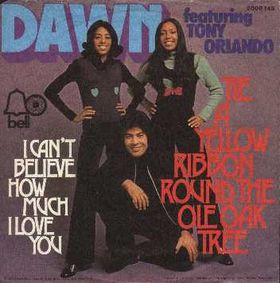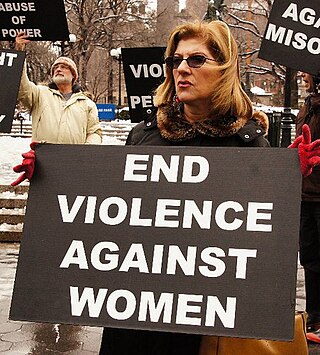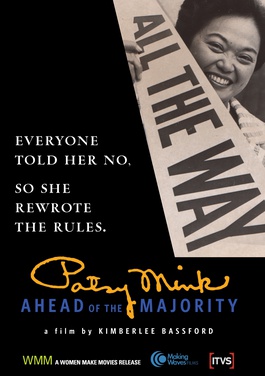Plot
Jenny is a young Korean-American woman and aspiring photographer who was adopted by a white family as a child. As an adult, she lives in Manhattan and is estranged from her Midwestern family because of a childhood incident with her brother, Joe. She spends most of her days in the presence of white friends and colleagues, in addition to casual flings with white men that never develop into actual relationships.
When Jenny is kicked out of the apartment she shares with her roommate, she moves in with Beatrice Shimizu, a beautiful but insecure model and college student. She also meets graphic artist Simon Chang, who lives next door with his sister Sandy, a socially awkward nursing student. Initially, Jenny has difficulty bonding with Bea and Simon because she is not as connected to her Asian-American identity as they are. Jenny learns to help Bea, who struggles with her own self-esteem issues and has to deal with her philandering boyfriend, Phillip. Jenny also tries to help Sandy overcome her shyness, and opens herself to the possibility of a relationship with Simon. In return, Simon and Bea encourage Jenny's interest in photography. When Joe shows up out of the blue, Jenny must confront her unresolved feelings about her upbringing and her Asian-American identity.
Critical reception
Benjamin Spacek of Las Vegas Weekly gave a positive review, awarding it 4/4 stars. He wrote, "It’s a sullen and moody work...it's also elegant and touching." [14] Spacek continued, "Using gorgeous location photography in tandem with an evocative soundtrack, Dietrich gives the film a lyrical quality, as we drift in and out of Jenny’s dreams. The deeper we dig, though, the more we find her fears and desires are universal. It’s a personal and unique vision, but it is no longer alone." [14] Reviewing the film for Variety , critic Dennis Harvey called the film "thoughtful" and said although its themes feel underdeveloped, its "virtues outweigh its flaws." [15] Harvey added, "Character writing and situations could have been taken to the next level in terms of emotional impact, though what’s here is still reasonably engrossing and poignant. If pic doesn’t ultimately match its own thematic ambition and dramatic potential, it still makes a fresh, credible impression." [15]
Writing for the Asia Pacific Arts magazine, Ada Tseng commented, "Dietrich has constructed a film that is not afraid to leave things murky and barely hopeful; the past keeps haunting, mistakes keep being made, and things that seem simple that may promote growth and healing may or may not work out." [8] Tseng added, "Jiang carries the film with a compelling performance throughout while dealing with taboo subjects; Kim is nervously fragile and heartbreaking as the perfect-on-the-outside girl who might fall apart at any second; and the third female character, Sandy, provides some comic relief as a shy little sister who is learning how to speak up for herself and demand respect." [8]

Hirokazu Kore-eda is a Japanese film director, producer, screenwriter, and editor. He began his career in television and has since directed more than a dozen feature films, including Nobody Knows (2004), Still Walking (2008), and After the Storm (2016). He won the Jury Prize at the 2013 Cannes Film Festival for Like Father, Like Son, and won the Palme d'Or at the 2018 Cannes Film Festival for Shoplifters.

Jennifer Diane Lewis is an American singer-songwriter, musician, and actress. She was the lead singer, rhythm guitarist, and keyboardist for the indie rock band Rilo Kiley.

The Aura is a 2005 neo-noir psychological thriller film written and directed by Fabián Bielinsky and starring Ricardo Darín, Dolores Fonzi, Pablo Cedrón and Nahuel Pérez Biscayart. It was Bielinsky's second and final feature film before his death in 2006. The plot revolves around an epileptic taxidermist who often fantasizes about committing the perfect heist, and who suddenly has the chance of making one happen after he accidentally kills a man who was in fact a career criminal.

Phylbert Angelli Ranollo Fagestrom, known professionally as Bea Alonzo, is a Filipino actress, singer and Youtuber. She is best known for playing dramatic roles in romantic drama films. Her notable films include The Mistress (2012), A Second Chance (2015) and The Love Affair (2015). Alonzo's films have grossed ₱3.15 billion, making her one of the highest-grossing Filipino box office stars of all time.

"Tie a Yellow Ribbon Round the Ole Oak Tree" is a song recorded by Tony Orlando and Dawn. It was written by Irwin Levine and L. Russell Brown and produced by Hank Medress and Dave Appell, with Motown/Stax backing vocalist Telma Hopkins, Joyce Vincent Wilson and her sister Pamela Vincent on backing vocals. It was a worldwide hit for the group in 1973.
Su Friedrich is an American avant-garde film director, producer, writer, and cinematographer. She has been a leading figure in avant-garde filmmaking and a pivotal force in the establishment of Queer Cinema.

Elizabeth Fong Sung was a Chinese-American actress, director, and screenwriter. She was also a revered acting teacher and mentor to young performers and filmmakers in the Asian-Pacific community.
Doan Hoang or Đoan Hoàng or Doan Hoàng Curtis is a Vietnamese-American documentary film director, producer, editor, and writer. She directed and produced the 2007 documentary Oh, Saigon about her family, after leaving Vietnam on the last civilian helicopter as Saigon fell. The documentary won several awards at film festivals and was broadcast on PBS from 2008 to 2012, and multiple channels at streaming services. Hoang was selected to be a delegate to Spain for the American Documentary Showcase. Hoang has received awards and grants from the Sundance Institute, ITVS, Center for Asian American Media, the Ms. Foundation for Women, Brooklyn Arts Council, and National Endowment of the Humanities.
Joy Dietrich is a Korean-born American journalist, writer, filmmaker, and producer. Her 2007 film Tie a Yellow Ribbon won several awards. Although born in Korea, she is an American adoptee, who grew up in the United States.
Lawrence "Larry" Russell Brown, known as L. Russell Brown, is an American lyricist and composer. He is most noted for his songs, co-written with Irwin Levine, "Tie a Yellow Ribbon Round the Ole Oak Tree" and "Knock Three Times"—international hits for the 1970s pop music group Tony Orlando and Dawn. He also co-wrote "C'mon Marianne" for The Four Seasons, and The Partridge Family 1971 song, "I Woke Up In Love This Morning".

Ciné-Asie is a Montreal-based, non-profit film and media company that seeks to explore the unique identity of Asian-Canadian media arts and artists. Its mission is to develop and create cinema that empowers people who are marginalized by mass media and to introduce the Asian cult and genre films to the wider public. Ciné-Asie is involved in many different projects including film contests, exhibitions and film screenings at the Cinémathèque québécoise.

Tami Kashia Gold is a documentary filmmaker, visual artist and educator. She is also a professor at Hunter College of the City University of New York in the Department of Film and Media Studies.
Bertha Bay-Sa Pan is a Taiwanese-American Director, Writer and Producer. Born in New Jersey and raised in Taiwan, Pan was educated at Boston University and the Columbia University Graduate Film School receiving a Masters of Fine Arts degree in Directing, while working as a Sales Executive in Film Distribution. Pan's graduate thesis short film at Columbia University, entitled "Face," garnered various awards from Film Festivals worldwide, including the Director's Guild Award for Best Asian American Student Filmmaker and the Polo Ralph Lauren Award for Best Screenplay.
Helen Lee is a Korean-Canadian film director. Born in Seoul, South Korea, she emigrated to Canada at the age of four and grew up in Scarborough, Ontario. Interested in film at a young age, she took film studies at the University of Toronto and, later, New York University. While in university she was influenced by gender and minority theories, as reflected in her first film, the short Sally's Beauty Spot (1990). While continuing her studies she produced two more films before taking a five-year hiatus to live in Korea beginning in 1995. After her return, she released another short film and her feature film debut, The Art of Woo (2001). She continues to produce films, although at a reduced rate. Lee's films often deal with gender and racial issues, reflecting the state of East Asians in modern society; a common theme in her work is sexuality, with several films featuring interracial relationships.

Christine Yoo is an American writer, director, producer and filmmaker. She has written and directed a romantic-comedy feature film entitled "Wedding Palace," starring Brian Tee, Kang Hye-jung, Bobby Lee, Margaret Cho, Joy Osmanski, Steve Park, Kelvin Han Yee, Elaine Kao, Charles Kim, Jean Yoon, Nancy J. Lee, Simon Rhee, and more. The film is a U.S.-Korea joint production that won Best Feature Film and Best Cinematography at the Cine Gear Expo Film Series Competition and a Golden Angel Award for Best Asian American Film at the Chinese American Film Festival and was also an official selection of the Los Angeles Asian Pacific Film Festival, the Asian American International Film Festival, the Philadelphia Asian American Film Festival and a number of other film festivals. For the film, Yoo also received a Best Director award at the Atlanta Korean Film Festival as well. Yoo has also served as a writer on the animated series Afro Samurai, scripting at least 5 episodes of the show. Yoo has also served as an Assistant Editor on TV shows such as VH1's Behind The Music, Motown 40: The Music is Forever, and an Apprentice Editor on the feature film Slums of Beverly Hills. Yoo has also written and directed a short film entitled "Yellow Belle", a mid-1980s set film about an Asian American teenage girl who comes of age in America's South.

Patsy Mink: Ahead of the Majority is a 2008 documentary film that was written and directed by Kimberlee Bassford and is her first feature-length documentary film. The documentary premiered at the Hawaii International Film Festival on October 12, 2008, and was later broadcast on PBS in May 2009. It focuses on Patsy Mink (D-HI), who was the first woman of color and Asian American woman to serve in the U.S. Congress and the co-author of the Title IX gender equity legislation.
Kim Sang-bum is a South Korean film editor, and filmmaker, best known for his collaborations with director Park Chan-wook.

Diane Paragas is a Filipino-American documentary and narrative film and commercial director. She is best known for writing, directing and producing the 2020 film Yellow Rose. Yellow Rose was Paragas' debut narrative feature. The film was selected as the Opening Night Film of the 2019 Los Angeles Asian Pacific Film Festival. Yellow Rose won Grand Jury Prizes at LAAPFF, Bentonville Film Festival, CAAMFEST37, and Urbanworld where it also took the Audience Award. The film also won the Audience Award at the Hawaii International Film Festival.
Deborah Lum is an American documentary filmmaker based in San Francisco. Her projects frequently explore subject matters within the Asian and Asian American community.











